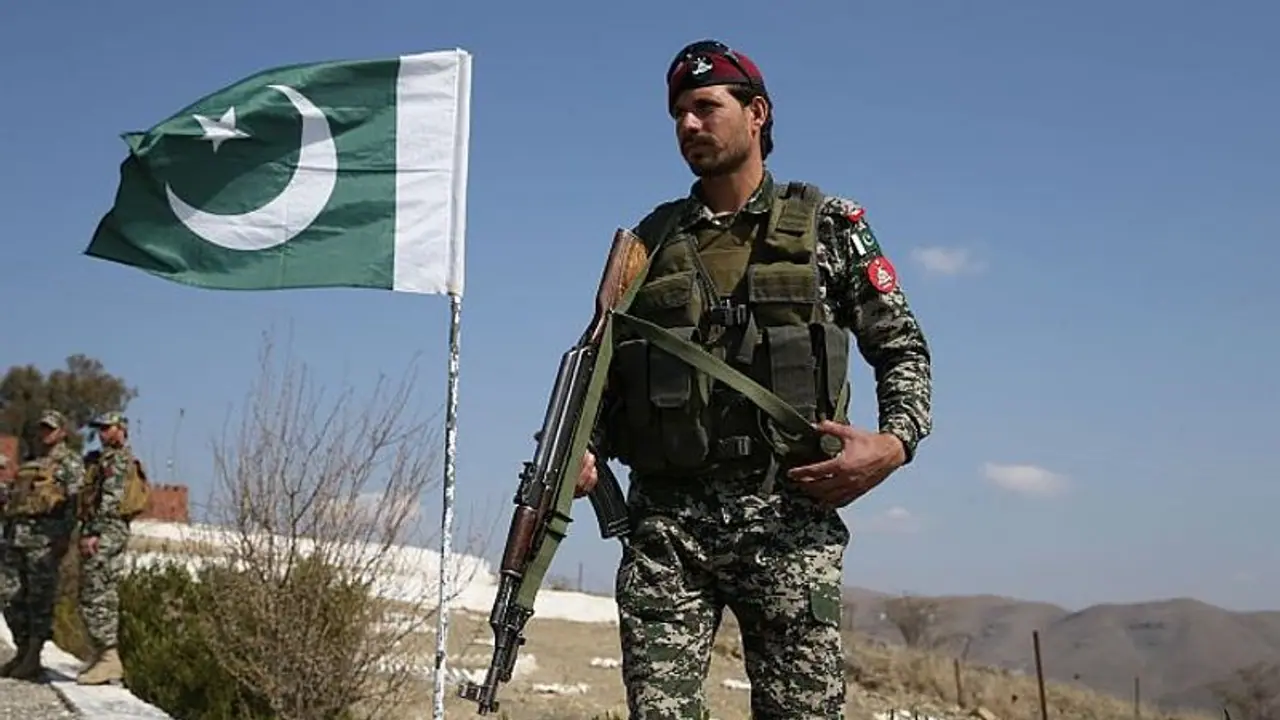Taliban has accused Pakistan's Shehbaz Sharif government of violating Afghanistan's sovereignty, which, it said, will not have good consequences.
Exacerbating border tensions between Pakistan and Afghanistan ever since the Taliban seized control of Kabul eight months ago, the two neighbouring countries have entered into an acrimonious relationship with each blaming the other for carrying out acts in each other's countries.

A total of 47 people were killed in airstrikes carried out by the Pakistani defence forces in Afghanistan's eastern provinces of Khost and Kunar. Islamabad has been accusing the Taliban leadership of not fulfilling the promises that they made while gaining control in the war-torn country. Taliban had promised that its territory will not be used for terror activities under any circumstances.
Also Read: Don't test Afghans; there will be dire consequences: Taliban warns Pakistan after airstrikes
Taliban has accused Pakistan's Shehbaz Sharif government of violating Afghanistan's sovereignty, which, it said, will not have good consequences.
What are Pakistan and Afghanistan fighting over?
Terrorist organisation Tehreek-e-Taliban Pakistan has been carrying out attacks in parts of Pakistan from the Afghanistan border. For months, Pakistan has repeatedly requested the Taliban government not to allow terrorists to use its soil for carrying out attacks in Pakistan.
On April 14, the Pakistan Taliban killed seven Pakistani troops in the North Waziristan district.
Taliban is also furious over Islamabad erecting a fence along the 2,700-kilometre border with Afghanistan.
Also Read: Explained: The road that Shehbaz Sharif needs to take
The porous border area between the two countries has been a stronghold for the TTP. It must be mentioned that the Pakistani Taliban and the Afghan Taliban are separate entities even though they draw some ideological strengths from each other.
Since 2007, the TTP has carried out a number of attacks, including the school attack in Peshawar that killed 145 students in 2014 and the 2009 attack on Pakistan's military headquarters. They had also tried to kill Nobel Peace Prize winner Malala Yousafzai.
Aftermath of the April 16 strikes
On April 16, the Pakistan military conducted an offensive strike against the group that led to the killing of 47 Afghans and the destruction of houses.
It has been learnt that the TTP has stepped up attacks against Pakistan in a bid to mount pressure on authorities to allow their cadres to return to their home with impunity in Pakistan.
As per reports, the Pakistan Taliban has inflicted heavy casualties on Pakistani security forces. Pakistan is of the view that the TTP is an emerging threat and the Taliban is unwilling to control them.
Post airstrikes, thousands of locals in Pakistan's Tank and Mirali districts thronged the streets in protest against the airstrikes.
As per Pakistan Taliban spokesman Muhammad Khurasani, "We want to tell the Pakistani army that every war has a principle and Pakistan has violated every principle of war up to date."
"We challenge the Pakistan army to fight us on the battlefield instead of bombing oppressed people and refugee camps," he said in a statement.
According to the reports, the Pakistani helicopters bombarded four villages in Khost province.
Taliban government had summoned Pakistan's ambassador in Kabul, Mansoor Ahmad Khan, and issued a strong demarche in this regard. Taliban spokesman Zabihullah Mujahid warned Islamabad not to test the patience of Afghans on such issues.
Taliban warns of dire consequences
Taliban has termed the Pakistan military action as an act of cruelty and a violation of Afghanistan's sovereignty.
If things blow out of proportion, the two countries could engage in a limited war. The Taliban has warned that war will not be in the interest of either side.
"Islamabad should know that if a war begins it will not be in the interest of either side. It will cause instability in the region," the Taliban said.
Also Read: India highly valued strategic partner for UK: PM Boris Johnson ahead of his visit
